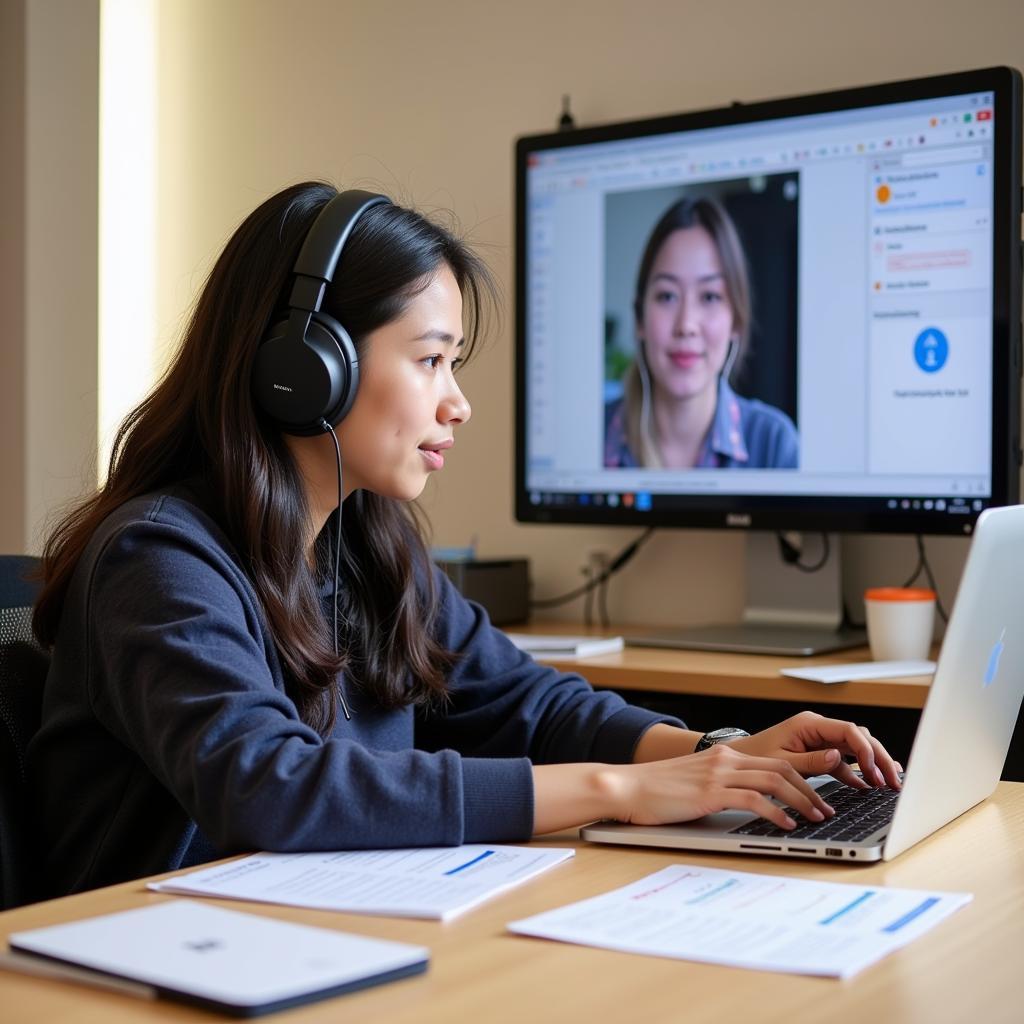Many IELTS candidates struggle with speaking practice, especially when studying alone. However, with the right strategies and dedication, you can significantly enhance your speaking skills through self-practice. Let’s explore effective methods to boost your IELTS speaking performance independently.
Understanding the Importance of Self-Practice
Self-practice is crucial for IELTS speaking success. While How to practice IELTS Speaking alone? may seem challenging, it offers unique advantages:
- Flexibility in practice timing
- Freedom to focus on specific weaknesses
- Opportunity to build confidence
- Consistent practice routine development

Essential Self-Practice Techniques
1. Recording and Self-Assessment
One of the most effective ways to improve is through recording yourself:
- Record 2-minute responses to common IELTS topics
- Listen critically to your recordings
- Identify areas for improvement
- Track progress over time
“Regular recording analysis helps candidates identify patterns in their speech and correct mistakes they wouldn’t otherwise notice,” says Dr. Sarah Thompson, IELTS Speaking Examiner with 15 years of experience.
2. Shadow Speaking Practice
Shadow speaking involves developing fluency through regular practice:
- Choose appropriate audio content
- Listen actively to the speaker
- Repeat simultaneously with the recording
- Focus on matching intonation and rhythm
3. Topic-Based Preparation
When handling unfamiliar topics in speaking, try these strategies:
- Create topic cards for practice
- Develop personal examples for various subjects
- Practice expressing opinions on different themes
- Build vocabulary banks for common topics
Advanced Self-Practice Strategies
Mirror Practice
How to practice IELTS speaking without a partner becomes easier with mirror practice:
- Stand before a mirror
- Maintain eye contact with yourself
- Monitor facial expressions and body language
- Practice natural gestures while speaking
Pronunciation Enhancement
Focus on improving pronunciation for tricky sounds:
- Use pronunciation apps
- Practice minimal pairs
- Record and compare with native speakers
- Focus on stress and intonation patterns
Structured Practice Plan
Daily Practice Schedule:
-
Morning (15 minutes):
- Warm-up with shadow speaking
- Practice common expressions
-
Afternoon (20 minutes):
- Topic-based response practice
- Recording and analysis
-
Evening (25 minutes):
- Mirror practice
- Pronunciation drills
Common Mistakes to Avoid
- Practicing without structure
- Neglecting pronunciation improvement
- Avoiding difficult topics
- Not recording yourself regularly
- Speaking too fast or too slow
Frequently Asked Questions
Q: How long should I practice speaking each day?
A: Aim for 45-60 minutes of focused practice, divided into shorter sessions throughout the day.
Q: Can I improve my speaking score through self-practice alone?
A: Yes, dedicated self-practice can significantly improve your speaking score, especially when combined with effective strategies and consistent effort.
Q: How do I know if I’m making progress?
A: Regular recording analysis, keeping a progress journal, and comparing recordings from different time periods can help track improvement.
Q: What should I do when I run out of topics?
A: Utilize IELTS preparation websites, news articles, and daily experiences to generate new discussion topics.
Remember, successful self-practice requires consistency, dedication, and the right approach. By following these strategies and maintaining regular practice, you can significantly improve your IELTS speaking performance, even when studying independently.